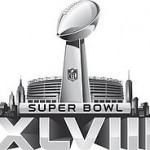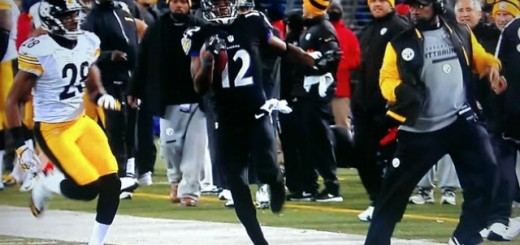The Super Bowl is on Sunday. It always has been, and it always will? Every year there is a new push to make the day after the Super Bowl a national holiday. But so far, no such luck. I want to offer up a second possibility. Host the Super Bowl on Saturday. Think about it. No work the next day means no worrying about “over-consumption” (at least not from a hangover standpoint, you should never drink and drive), and no worrying about getting to bed on time.
Commissioner Roger Goodell already hinted that if the playoffs were expanded, games would be played on Friday and Saturday. Of course, playoff games are already played on Saturdays. (Have you ever wondered why you only see Saturday games in January? Scroll down a bit, and I’ll explain.)
So why not just move the game up a day?
The teams already have 2 weeks of preparation, one of which is a media-day, where no real game prep happens anyway, so there would be no real drop in the quality of prep-time. Plus, there is no competition for viewers. 108.4 million people watched last year’s game, and the NFL Draft already draws more viewers than some NBA playoff games. In fact, if the big game were moved to Saturday, the other leagues, and the networks not airing the game would likely adjust and simply concede that the vast majority (70%) of people watching TV that night will be tuned into the Super Bowl.
So, Commissioner Goodell, do us working folks a favor. Move the Super Bowl to Saturday and let us be the true American football fans that we are as we drink beer and eat nachos all day and night without worrying about work the next day. Oh, and by the way, there are zero legal impediments to this plan. Plus, instead of being booed at the Draft, you may just get a standing ovation.
The Legalities of Broadcasting an NFL game on a Saturday
As the NFL continues its quest for interstellar domination, it continues to expand the days and nights on which you can watch a game. There are now 16 Thursday night games (with talk of more) to go along with the already full slate of Sunday and Monday night games.
Have you ever wondered why the NFL broadcasts games on Thursday nights instead of Friday? Or, why they only play Saturday games late in December and January? The answer lies in the Sports Broadcasting Act of 1961(“SBA”) which prevents NFL broadcasts from competing with college football games. In short, the NFL cannot broadcast it’s games between the hours of 6pm Friday and 12am Sunday, beginning on the second Friday in September and ending on the second Saturday in December without risking an antitrust violation and the accompanying treble damages.
So rather than risk a lawsuit with damages in the multiple tens of billions of dollars, the NFL stays outside the no-fly zone prescribed by the SBA. But, since the NFL playoffs and the Super Bowl are played well after the second Saturday in December, the NFL would be free to broadcast the big game on Saturday night without risking any antitrust lawsuits.
I implore you Mr. Goodell. Move the Super Bowl to Saturday. Sure you might have to do a little re-branding, but the fans will thank you.
A Detailed Look at The History Of The Sports Broadcasting Act and How It Works Today
To understand the SBA is to understand the tidal wave of change that occurred in the middle of the 20th century that forever altered the way the country viewed live sporting events. At the turn of the century, the only way to view a sporting event was to be physically present at the site of the event. However, radio and television changed the ways in which sports fans could “consume” a sporting event.
In 1920, the first radio broadcast of a collegiate football game took place. Then, in 1939, NBC televised the first live sporting event – a baseball game between Columbia and Princeton. Five months later, NBC televised the first professional football game – the Brooklyn Dodgers vs. the Philadelphia Eagles. At first, these telecasts were viewed in limited numbers. For example, in 1948, only 190,000 television sets were in use in the United States. But, by 1950, that number skyrocketed to 10.5 million.
The rising accessibility and popularity of televised sports represented a threat to live-game attendance, which at the time, was the primary revenue stream of professional teams. In 1953, in an attempt to protect live ticket sales, the NFL adopted a rule preventing the broadcast of outside games into a team’s home market, regardless of whether it was playing at home or away. As a result, the Department of Justice initiated an antitrust suit against the NFL. The United States District Court, for the Eastern District of Pennsylvania found the away-game restriction to be an illegal restraint of trade. But, it found the home-game restriction to be reasonable because protection of “home game attendance is essential to the very existence of the clubs.” As a part of the court’s final judgment it enjoined the NFL and its member clubs from making any agreement which had the purpose or effect of restricting the areas within which broadcasts or telecasts of games may be made.
Eight years later, in an attempt to compete with the emerging AFL; the member teams of the NFL pooled their broadcast rights and attempted to sell the pooled rights to CBS. Once again, the NFL was turned back by the Eastern District of Pennsylvania which found that the CBS contract was a violation of the injunction issued 8 years earlier.
Rebuked by the courts, the NFL turned to Congress. Two months after the NFL’s contract with CBS was held invalid, Congress passed the SBA. Section 1291 of the SBA allows the leagues to sell pooled broadcast rights to sponsored telecasts (NBC, ABC, and CBS) by exempting such agreements from antitrust laws.[i] Thus, the NFL successfully protected their primary revenue source (live-attendance) by pooling the broadcast rights of its member clubs and negotiating with the networks as to when and where games would be televised.
Today, as a result of the SBA, the NFL pools the rights to broadcast all regular season and post-season games. Individual teams are only allowed to independently sell their pre-season broadcast rights.
The Sports Broadcasting Act Also Protects College and High School Football
While section 1291 of the SBA exempts the NFL and other professional leagues from antitrust attack when pooling their broadcast rights, section 1293 takes away that protection in certain circumstances.[ii] Section 1293 was designed to protect college football gate receipts from the potentially devastating effects of competing for crowds against televised professional football games.[iii]
The SBA prevents NFL broadcasts from competing with college football attendance by removing the antitrust exemption granted in section 1291 when the NFL broadcasts games at times when college games are typically played. If the NFL and its broadcast partners were to televise any of the games sold in the pooled packages during the prohibited time frame, they would risk treble damages in the event those pooled packages are held to be in violation of antitrust laws.
Specifically, the antitrust exemption granted in section 1291 does not apply to any professional football game televised (1) between the hours of 6pm Friday and 12am Sunday, (2) beginning on the second Friday in September and ending on the second Saturday in December.
Thus, while not a direct prohibition, the risk of treble damages is more than enough to keep the NFL at bay. Not to mention that in today’s marketplace it would not make much business sense to try and compete with college football broadcasts. After all, over the last fifty-years the football fan has become accustomed to watching college games on Saturday and professional games on Sunday.
So, the next time you decide to stay home on a Friday or Saturday night in the fall and can’t watch live NFL games you will know who to blame – Congress of course.
[i] 15 U.S.C. § 1291. The term “sponsored telecast” has been the subject of some debate but the better argument is that it applies only to traditional ‘over-the-air’ broadcasts such as NBC. At the time the Act was passed FOX was not in existence, but the law clearly applies to league contracts with the network.
[ii] 15 U.S.C. § 1293 states: “The first sentence of section 1291 of this title shall not apply to any joint agreement described in such section which permits the telecasting of all or a substantial part of any professional football game on any Friday after six o’clock postmeridian or on any Saturday during the period beginning on the second Friday in September and ending on the second Saturday in December in any year from any telecasting station located within seventy-five miles of the game site of any intercollegiate or interscholastic football contest scheduled to be played on such a date if-(1) such intercollegiate football contest is between institutions of higher learning both of which confer degrees upon students following completion of sufficient credit hours to equal a four-year course, or (2) in the case of an interscholastic football contest, such contest is between secondary schools, both of which are accredited or certified under the laws of the State or States in which they are situated and offer courses continuing through the twelfth grade of the standard school curriculum, or the equivalent, and (3) such intercollegiate or interscholastic football contest and such game site were announced through publication in a newspaper of general circulation prior to August 1 of such year as being regularly scheduled for such day and place. 15 U.S.C. § 1293.
[iii] In 1966 the protection was extended to high school football games.Colorado High Sch. Activities Ass’n v. Nat’l Football League


Recent Comments